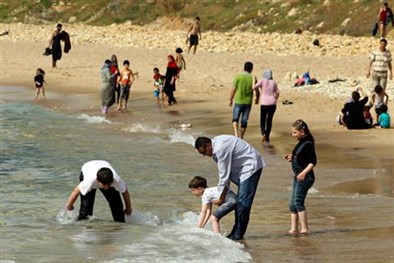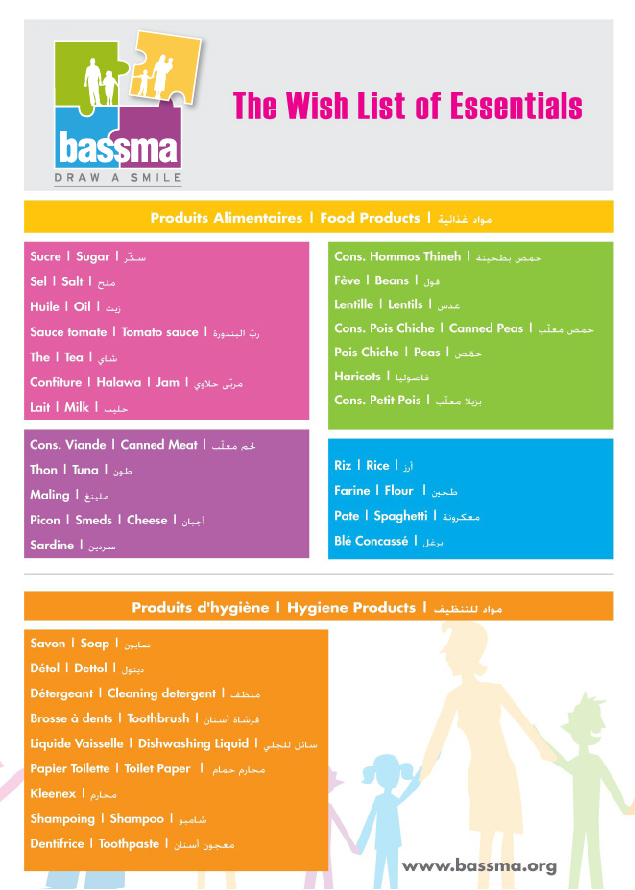source: www.dailystar.com.lb
Flush a toilet in Beirut and the waste water is piped out a kilometer into the Mediterranean and expelled into the sea. Flush the toilet just about anywhere else, however, and the waste is deposited just a few meters away, using the nation’s coastline as a giant toilet bowl.
Beach-goers are swimming in dangerous levels of their own filth at many public beaches and resorts in the country, according to testing conducted by Environment and Development Magazine that measured fecal levels in swimming water in 19 areas along Lebanon’s coast. The report found the water unsafe for swimming, well above international safety limits, in seven areas. Two other areas were borderline unsafe for swimming, according to the results.
“The pollution in the Lebanese sea is from sewage, it’s fecal coliforms,” said Najib Saab from Environment and Development Magazine.
Water samples that the Environment and Development Magazine took from swimming areas in Nahr al-Kalb, Jounieh and Tabarja measured above the 100 fecal coliforms mark considered no longer safe for swimming.
Samples from swimming areas in Ramlet al-Baida, Antelias and Jbeil contained so many fecal coliforms laboratory scientists stopped counting; the areas are filled with sewage water. Samples in Mina, and Sidon came back borderline toxic.
The results given to The Daily Star reveal a widely polluted coast undermining Lebanon’s image as a beach and resort destination. Unsafe levels of fecal coliforms can lead to rashes, diarrhea and vomiting and can spread disease depending on the extent of exposure.
Results can vary widely in the same city based on where the sample is taken, it often depends on where waste is exhausted, which is not widely regulated. Environment and Development Magazine conducted their studies at the American University of Beirut and will publish full results in next month.
“This is an emergency,” said Nada Zaarour, president of Green Party, about the study. “People shouldn’t be swimming at Lebanese beaches.”
“It’s a very serious problem that the Lebanese people are dealing with since we have some of the most expensive resorts on the Mediterranean coast,” she added.
The problem, environmentalists and water experts say, is water treatment.
There are almost no water treatment plants in operation anywhere along the coast. Wastewater from all the major coastal cities is exhausted straight into the sea. Even water from the hinterland goes into the waterways untreated and eventually pollutes the coast.
Water experts say there is very little regulation of wastewater. Some cities, such as Beirut, have long exhaust pipes that move waste a kilometer away from the shore. Some municipalities deposit wastewater directly on the coast, others a few meters into the sea. Private companies often have their own, also unregulated, waste exhaust.
There is no city that is treating all of its waste, said Manfred Scheu a civil engineer and environmental management specialist from GIZ, a German government-owned international development organization.
There are three “outfalls” in Sidon and southern and northern Beirut that discharge waste a safe distance into the sea, Scheu said. All of the others are discharged directly on the coast, and he said that posed a particular danger.
“It means if someone is carrying a disease, the bacteria will reach the sea,” Scheu said.
The national government, municipalities and international organizations have been working on building a slew of waste treatment plants on the coast for years. Treatment plants are in various stages of development in Tripoli, Shekka, Batroun, Jbeil, Tabarja, Dora, Ghobeiri, Sidon, Tyre and several other areas. But various delays continue to slow the projects.
Scheu says he expects the Tripoli plant to become operational this year. Other waste water plants are years away from entering service.
“It’s going to change soon, but not this year,” Scheu said.
image: Ramlet el Baida (Hassan Shaaban













